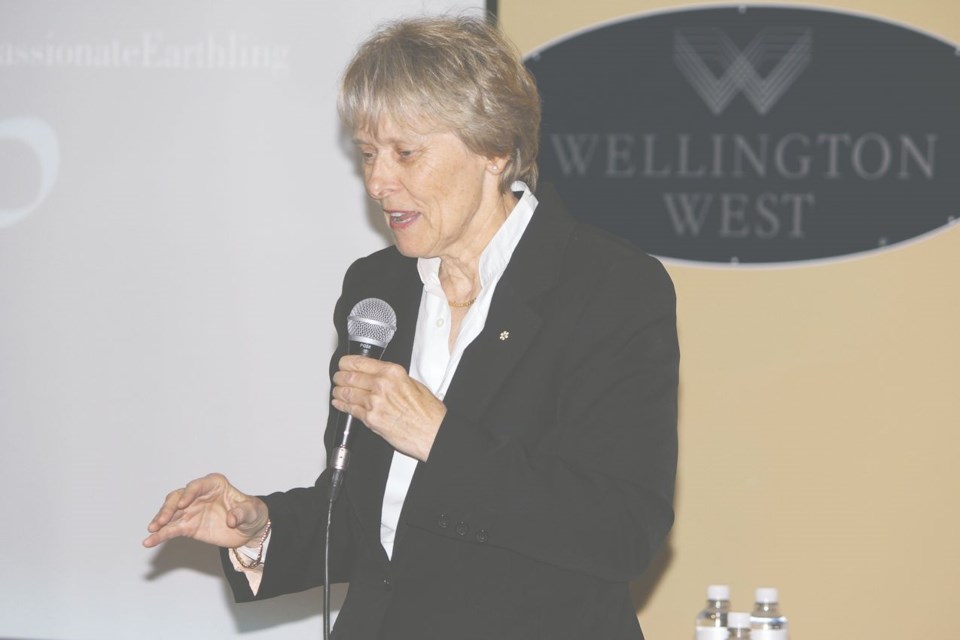No presenter at the second annual SEER/YTC TransACTIONs conference at the Gallagher Centre was more distinguished than Dr. Roberta Bondar.
Canada's first female astronaut, the first neurologist in space, as well as a noted researcher, educator, and author, Dr. Bondar was in Yorkton to give her perspective on the importance of risk-taking and adaptation to humans at the personal, societal, and species level.
People naturally find the unknown disorienting, frightening, and paralyzing, noted Bondar, but it must be confronted deliberately: not just for the sake of self-improvement, but for practical reasons. We can never know what knowledge and experiences will prove useful to us in the future.
Bondar cited an example from her own past. When she was chosen for her 1992 orbital spaceflight, it was not for her qualifications as a neurologist, her communications skills, or for any of the other credentials that had earned her a place in the astronaut program. It was for something she considered a hobby: her time spent studying insects years earlier, which NASA identified as an experience relevant to the mission.
Her stance on the value of diverse personal experiences is not unlike the arguments made in favor of the space program, acknowledged Dr. Bondar. Space travel might appear to have few practical applications, but the fruits of research both direct and tangential to the pursuit have provided countless unforeseen benefits to humanity.
"There are things that are thrown at us that come from left field: things that we're not expecting, things that we perhaps don't want that interfere with our survival. And unless we have a very broad and diverse background, we're not very flexible, or very nimble, to be able to solve a problem or solve an issue."
Forming relationships and partnerships is another way to realize the benefits of varied knowledge, said Bondar. Exchanging perspectives is an ideal way to "open up new ways of looking at things."
This is another philosophy that can be applied at a broader scale.
"Let's face it, there's no one culture that has the right answer to things. We have to tap into people's experiences and the reasons why they do things the way they do them-because we learn, and we expand."
But Bondar also cautions against viewing ourselves as too different. "We're in this together," she noted.
A balance must be found. Stepping backward, humans can be viewed as collections of organs; cultures as collections of humans; and communities as collections of cultures. New knowledge can be gained by observing each level, the neurologist said.
"The balance to me is a personal balance-how far you want to step back and how many things you can discover from different types of patterns."
Bondar touched on the subject of space exploration only indirectly during her presentation, but expanded on the topic in an interview afterwards.
The recent cancellation of NASA's shuttle program has put a cloud of uncertainty around the future of human involvement in space.
Space exploration, predicted Bondar, will continue in non-human forms-robotics and telescopes-during its next phase.
But as a neurologist, Bondar hopes that a human presence beyond Earth will continue, if only for the value a microgravity environment has in teaching us about human physiology.
"We can unmask things that are masked down here: learn how to develop new types of therapeutics, learn how bone loss occurs, for example."
Nor should the inspirational value of sending humans into space be underestimated, she added.
"I think human spaceflight right now is a way of symbolizing the great adventure, or symbolizing that we can ask a big question-because we only derive big answers when we ask big questions."



